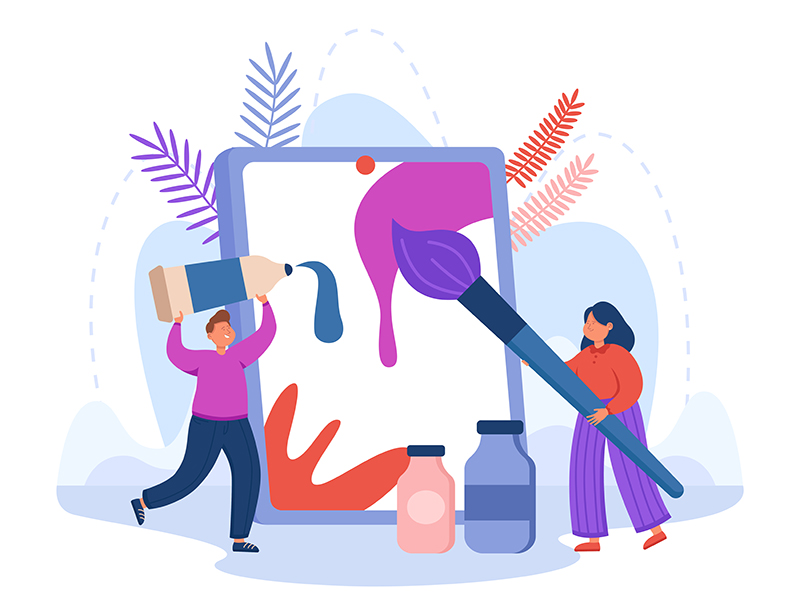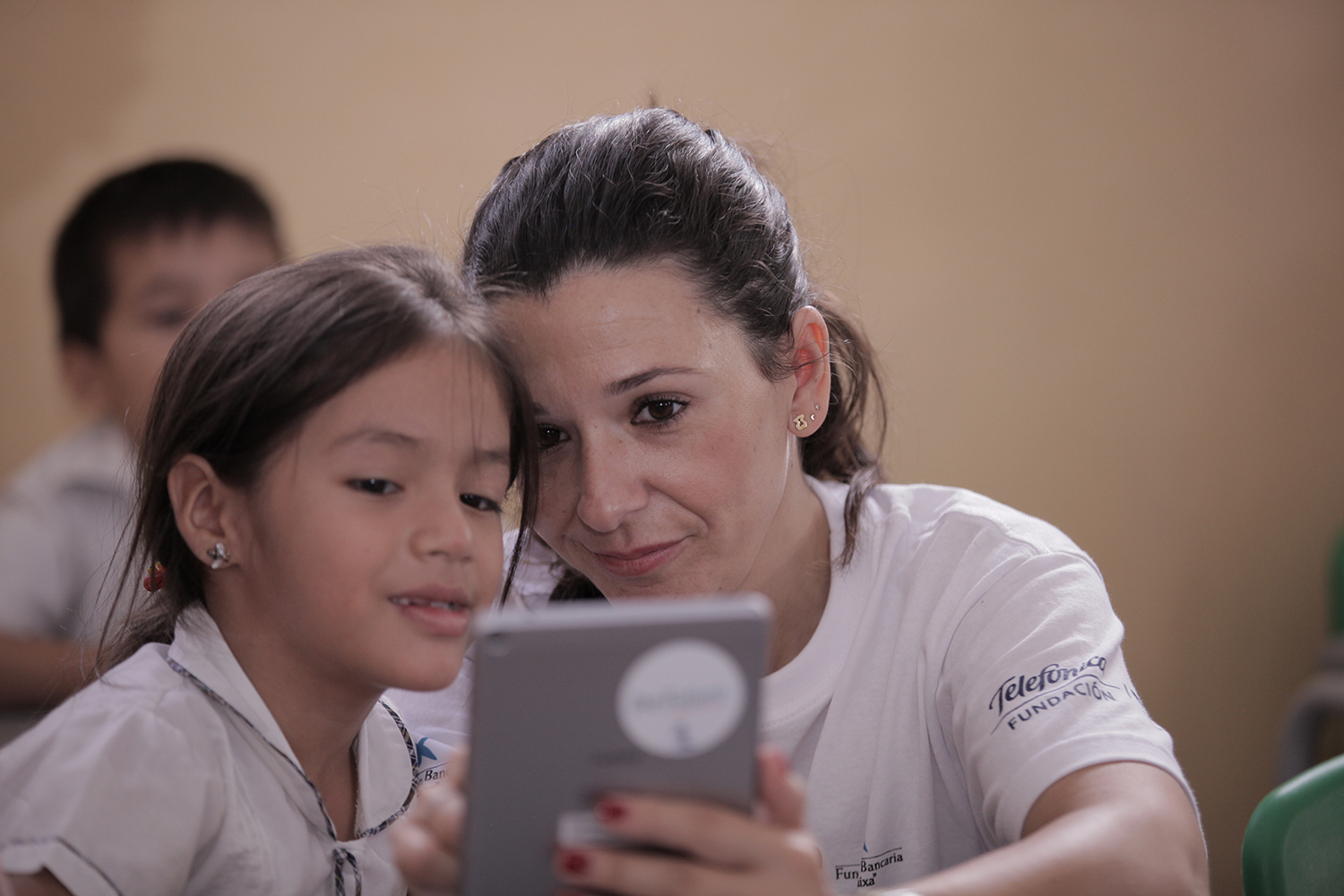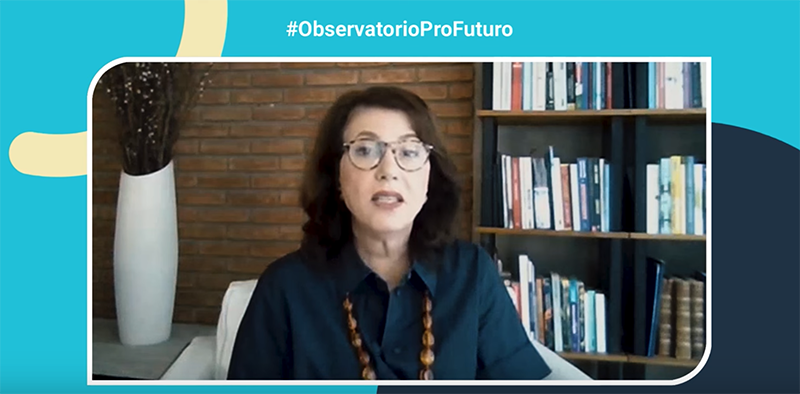It is clear that the global and technological society of the 21st century needs teachers with specific skills to put technology at the service of the pedagogical model and introduce it in the classroom. What should new teachers be like in an increasingly digital educational environment? What do they need to know in order to be able to teach their students? What are these skills and how to develop them?
Digital skills are understood as the knowledge and skills necessary for the use of technologies, with the aim of strengthening teaching pedagogy and student performance, and facilitating their use in a critical, creative and safe manner, favouring flexible and autonomous learning for children (Latin American Coalition for Teaching Excellence, 2022).
To realise the full potential that technology can bring to education, teachers need to learn how to handle it and integrate it into their daily pedagogical practice. This means that teachers must not only know how to use technology appropriately, but must see it as a tool to advance their pedagogy and be able to make sound decisions about when and how to use it to maximise student achievement (Latin American Coalition for Teacher Excellence, 2022).
To realise the full potential that technology can bring to education, teachers need to learn how to handle it and integrate it into their daily pedagogical practice.
The pandemic made us rethink the importance of teachers’ digital competences and set us on the path to initiate a strategy of definition, assessment and training. Public administrations and other actors involved in the world of education have taken note and are developing competency frameworks and systems and tools to digitally empower their teachers. In this article we will look at some of these programmes.
Contacto Maestro (Teacher Contact) Colombia
“We need a teacher who incorporates technology into their daily work.” We’ve created a programme called Teacher Contact that’s not only about technology connecting us, but also about connecting us with empathy”. These were the words of María Victoria Angulo, former Colombian Minister of Education, in a dialogue she held with Magdalena Brier, Director General of ProFuturo, for this Observatory. Thus, Teacher Contact is a platform for teachers with information and resources to enable them to train, connect with other teachers and care for themselves. They’ll find a wide range of training opportunities, calls for research and knowledge promotion, networks, mentoring and communities of practice; they’ll thus be able to “do their magic better”, motivating their students and making their classes more fun and enjoyable by means of new media.
The platform has three lines: initial training, continuous training and postgraduate training and has a menu where users can find four sections: Connect, Care, Transform and Inspire. Teachers and managers will find a special offer for continuing and advanced training, networks, mentoring and communities of practice, calls to promote research and knowledge production, guidelines to strengthen socio-emotional skills, a healthy lifestyle and a Leadership School that enhances skills for the management of educational teams.
In addition, the platform has a Resource Bank so that teachers have an offer of digital educational materials including documents, articles, videos, tutorials and other tools that will provide them with elements to deepen their learning process and strengthen their leadership practices.
Teacher Contact is part of the Digital Learning strategy: Content for All of the National Government.
EdukLAB (Colombia)
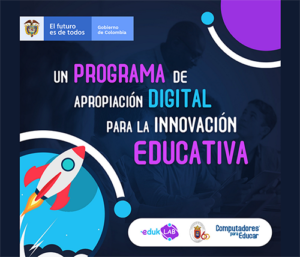
Educational innovation laboratories EdukLAB are scenarios of pedagogical experimentation and co-creation, aimed at teachers, which use novel, alternative and disruptive approaches, methodologies and digital tools that enable the creation of meaningful learning experiences and the creative solution of educational problems and the school context. The laboratories are developed using the Design Thinking methodology applied to education.
The offer includes a diploma with virtual or face-to-face courses of pedagogical experimentation and creative experiences to develop activities using the STEM approach and the Maker culture (learning by doing). The programme is made up of different “training routes” focused on new virtual learning experiences, the improvement of educational work, the culture of self-managed training and participatory methodologies.
In this video they explain how it works.
Digital Teachers (Regional)
Digital Teachers is a training proposal of the ProFuturo Foundation with two main objectives: to enhance the technological appropriation of teachers and to use technology in the design of didactic sequences that help to improve educational practices.
It is organized into four levels of digital skill, so that they can be assigned according to the level and needs of each teacher. Within each level, different courses are offered focusing on different technological tools. For example, at the basic level, where initial digital skill is addressed, there are courses related to digital image and audio and basic video; at the intermediate level, which focuses on the development of digital educational resources for the design of didactic sequences, there are courses on creating interactive images and videos and evaluating with digital tools; at the advanced level, where the development of content to share and build online is addressed, there are courses on navigation and information management and the creation of educational websites; finally, at the expert level, ICT is put at the service of active learning and the knowledge acquired is integrated into a Project Based Learning proposal.
The courses operate independently so that each teacher can take the one that best suits his or her needs. However, as it is a gradual proposal, it can be approached as a training pathway in which different activities can be approached.
So far, the programme has been implemented in Argentina, Colombia, Costa Rica, Ecuador, El Salvador, Mexico, Panama, Uruguay and Venezuela.
Teachers Connected (Maestros Conectados) (Paraguay y regional)
Learn how to edit videos with Cap Cut, Interactive classes with digital whiteboards, Gamify your classes, Redraw your classes with CANVA, WhatsApp Learning: The ally for your classes… These are some of the courses offered by Teachers Connected a programme that offers free training for teachers on digital tools for education.
The platform’s training courses are aimed at teachers, head teachers, coordinators of educational institutions, teacher training students in the region and personnel associated with the educational/training environment, who are interested in acquiring more knowledge about digital tools and applying them in the development of their classes, whether virtual or face-to-face.
The training is 100% online and participating teachers can take the courses and enjoy the content offered at their own pace and according to their time availability.
Teacher Self-Assessment Tool (Regional)
When we talk about teaching digital skills, it is also very important to provide teachers with tools that allow them to identify their own skills, what they know and what they do not know about technology, and show them how they can evolve. In order to be able to do so, ProFuturo has set up the Teacher Self-Assessment Tool adapted from a tool developed by the Brazilian Innovation Centre for Education (CIEB). The tool, which ProFuturo has open-sourced and translated into four languages (Spanish, Portuguese, English and French), is composed of 23 questions organised into three areas: pedagogical, digital citizenship and professional development. At the same time, each area is evaluated upon the basis of four skills (12 skills in total).
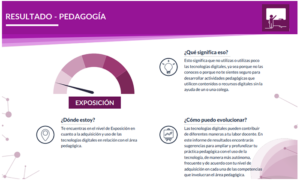
Following completion of the self-evaluation questionnaire, the teachers receive a results report, constituting personalised feedback to indicate the level of appropriation with regard to their knowledge and use of digital technologies. The results report also contains orientations and guidelines to incentivise their professional development, with the aim of giving them more autonomy in search of the perfecting of their practices and accompanying their progress over time.
Furthermore, the aggregated and anonymised data stored by the tool can be consulted and used by public administrations and social organisations working with teacher training to guide their planning, contributing to the planning of in-service training programmes and courses to promote teachers’ professional development, taking digital skills to another level.
The changes that new technologies are bringing about in education are unparalleled by almost anything we have seen so far. Perhaps it could be equated with the invention of the printing press. We are at the beginning of a path which, if properly channelled, could lead to the true democratisation of access to quality education. But for this to happen, teachers are the crucial link. And their digital skill development should be the driver of the change we need to make.
REFERENCES
Latin American Coalition for Teaching Excellence. (2022). Compendium of digital teaching skills.
Fundación Telefónica y Fundación La Caixa. (2022). User manual for self-assessment of digital skills of teachers.
ProFuturo Foundation and EducaInnova21 Association. (2021). Digital Teachers. Accompanying manual.
Header image pch.vector on Freepik.



